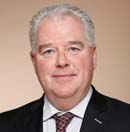this article was originally published on Paperjam. Read the article here.(in French)
Eventually, every wealth creator has to grapple with one, intractable, issue: you can’t take it with you when you die.
Today’s growing number of High Net Worth Individuals have accumulated substantial assets, including family businesses. Consequently, wealthy families have struggled with the challenges of preservation, legacy and how to ensure good governance of their estates after they have gone. They have created a range of structures to deal with the problem, including listed Investment Trust vehicles and a variety of family office structures.
In life, they work well; but deciding how they are to work in death can be more challenging.
“Clients often have issues in securing their wealth,” says Amaury de Potter, Director Sales – Belgium and Luxembourg at Lombard International Assurance. “They worry about excessive tax liabilities and, in the case of family businesses; struggle to decide how control should be transferred to their children who are often ignoring the size and the complexity of wealth management.” On top, some inheriting children lack the qualifications and expertise to effectively preserve and grow the family wealth.
As a result, many wealthy individuals have settled on trust structures leaving trustees to deal with different problems. But these can fail to work in situations where inheritances cross international borders. “Tax treatments of Trusts by common and civil law jurisdictions are very different,” notes de Potter, “and the rich are an easy target for governments with growing fiscal deficits to fund.”
No one size fits all, but de Potter points to Luxembourg Life Assurances as one answer to these problems. They can cater to a variety of traditional and non-traditional assets, including the economic ownership of family businesses. Ownership may cede to the Life structure, but operational control is maintained outside of the policy; and policies can be written in such a way as to distribute wealth freely among beneficiaries. “Above all,” says de Potter, “life assurances are recognised in every significant legal jurisdiction and are governed by a robust asset protection regime.”
Jurgen Vanhoenacker, Executive Sales Director at Lombard International Assurance, says it is best for wealthy individuals to start planning for their wealth and succession as early as possible. “Preparing for succession and wealth transfer early creates peace of mind. It strengthens succession arrangements and can be updated in response to evolving family dynamics.” He adds:
“If you can understand the motivating factors, you can give the right advice to families and create a solution using the right structures.”
Life Assurance structures can accommodate children inheriting wealth before they are ready to cope with it – either because they are minors or lack the skills to effectively steward the assets.
Putting in place the right arrangements on time can avoid family disputes which waste time, destroy value and – in extreme cases – could jeopardise jobs within family businesses.

Amaury de Potter
Director Sales - Belgium & Luxembourg
Lombard International Assurance


Jurgen Vanhoenacker
Executive Director - Wealth Structuring Solutions
Lombard International Assurance
